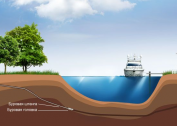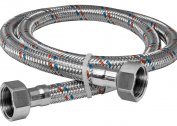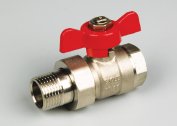The rules for using water supply and sewage systems are regulated by the Decree of the Government of the Russian Federation No. 167. It was adopted back in 1999, but amendments to the regulatory act were made in October 2015. It includes general provisions that explain all concepts of the document - from the parties agreeing on the operation of communications, to possible problems and crashes. Knowing the nuances of the decision, you can protect yourself from unlawful penalties or, conversely, require service companies to perform their obligations in a quality manner.
Contractual relationship between the organization of the water supply and sewage system and subscribers
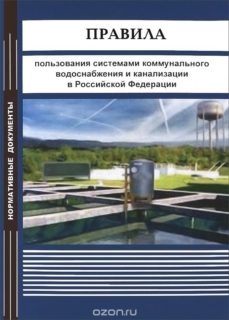 The rules clearly state that subscribers are not just owners of apartments and houses, but entrepreneurs who own or supervise water supply facilities and sanitation facilities. They conclude agreements with an economic organization on the acceptance of drains or the supply of drinking water. Only after that they have the right to provide services to the public. Subscribers can be utilities, management companies, housing associations, other associations managing the housing stock.
The rules clearly state that subscribers are not just owners of apartments and houses, but entrepreneurs who own or supervise water supply facilities and sanitation facilities. They conclude agreements with an economic organization on the acceptance of drains or the supply of drinking water. Only after that they have the right to provide services to the public. Subscribers can be utilities, management companies, housing associations, other associations managing the housing stock.
To conclude an agreement, the customer needs to collect a package of documents. It includes:
- an application listing objects connected to water supply and sewage systems;
- data on the volumes of drinking water and effluents;
- documents confirming the applicant’s right to use utility networks and structures, as well as permission to connect;
- schemes of sewer highways and water supply systems;
- regime and limits of water supply and acceptance of effluents;
- sanitary and hygienic indicators;
- list of measures for accounting and rationalizing water use and reducing wastewater.
When drafting the agreement, tariffs, terms and conditions of payment, the amount of penalties in case of violation of the obligations of the parties are negotiated. Attached to the document is an act delimiting the responsibility for the use of communications. If it is absent, the liability limit is determined on the basis of the balance sheet ownership.
If there is no agreement between the parties, connecting the enterprise to water communications or providing services to consumers is considered illegal.
Accession to utility systems and water metering
In addition to the contract with the business organization, for the correct connection to the water supply systems, the subscriber must install metering devices for consumption and discharge of liquids. They are placed on the site delimiting operational responsibility. At the same time, it should be well lit, in good condition and accessible for inspection. In this place transit highways and releases should not be located.
Representatives of the business organization check all documents for reception of accounting and seal it. They also report the timing of the testimony, the time of standard verifications and unscheduled conditions, for example, with errors in the meter readings.
If the owner of the device himself has discovered a malfunction, he needs to notify the regulatory authorities within three days after this.
The status of the subscriber allows entrepreneurs to independently control the consumption of drinking water and the volume of runoff of sub-subscribers, that is, users. If the measuring instruments are faulty, in agreement with the managing organization, accounting and payment is carried out on the basis of average indicators for a half-year period. A month is given for repairs.
Rationing and control
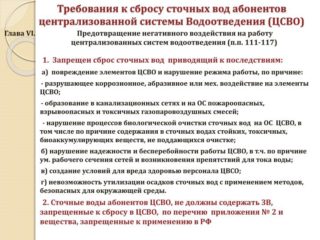 Limitations of water disposal and water supply are carried out by local authorities and business organizations. The limits are set depending on how powerful the lines are. At the same time, the subscriber must monitor how rationally the drinking water is used and whether excess discharges lead to environmental pollution.
Limitations of water disposal and water supply are carried out by local authorities and business organizations. The limits are set depending on how powerful the lines are. At the same time, the subscriber must monitor how rationally the drinking water is used and whether excess discharges lead to environmental pollution.
If the limits are regularly exceeded, they are reviewed and searched for reasons. But rarely, public utilities go to their increase. The rules for the use of public water supply and sewage systems indicate the need for measures for the rational use of water resources.
The majority of control actions are aimed at reducing the risk of ecosystem pollution by fecal discharges. Prohibited:
- clogging of pipelines and wells with foreign objects, destruction of their structural elements;
- the formation in the sewer of explosive and toxic compounds;
- obstacle to the biological treatment of effluents.
The quality control of drinking water is carried out through inspections in laboratories for compliance with standards.
Payments for drinking water and sewage discharge
You need to pay for the use of water supply and sewage systems regularly according to indicators of metering devices and tariffs established in the region.
Payment of utility bills by sub-subscribers can be sent both to the subscriber according to the concluded agreement, and directly to the managing organization. In the latter case, this must be agreed with the subscriber.
The procedure for the termination or limitation of vacation and water
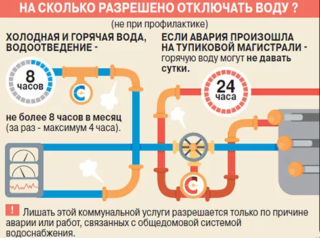 Turning off the water supply system and even the sewage system is possible without prior warning, in case of:
Turning off the water supply system and even the sewage system is possible without prior warning, in case of:
- emergency situation;
- power outages;
- the need for a large amount of water for fire fighting.
The limitation of the supply of drinking water with prior notification to users is carried out if its quality has deteriorated, pollution has occurred or scheduled repairs are being carried out, as well as the connection of new subscribers.
Communications will be disconnected upon detection of an unauthorized connection to systems or non-payment for delivered services.
Obligations, rights and responsibilities of the parties
Each participant in the contractual relationship has its rights and obligations. For an organization:
| Rights | Duties |
| Monitoring of consumption and water discharge. | Ensuring the functionality of all utilities. |
| Taking measures of economic impact in case of violation of contractual obligations. | Taking measures to level leaks and other water losses. |
| Limitation of work and even shutdown of water and sewer networks in certain circumstances. | Timely liquidation of emergency situations and their prevention. |
| Disconnection from communications of those who connected without permission. | Informing about the quality of drinking water, tariff changes, consumption limits. |
Conducting laboratory tests of water and wastewater is not only the right of the organization, but also its responsibility.
The subscriber has to comply with his part of the contract: monitoring the operation of utility systems and keeping them in good condition, timely payment, ensuring the preservation of seals on metering devices.
It is necessary to ensure unhindered access for representatives of supervisory services to counters and audit sites for sampling. At the same time, he may require the business organization to clearly perform their duties.
Subscriber have the same rights, that is, ordinary users of utilities - both in relation to the subscriber, and to the organization with which he has an agreement.
